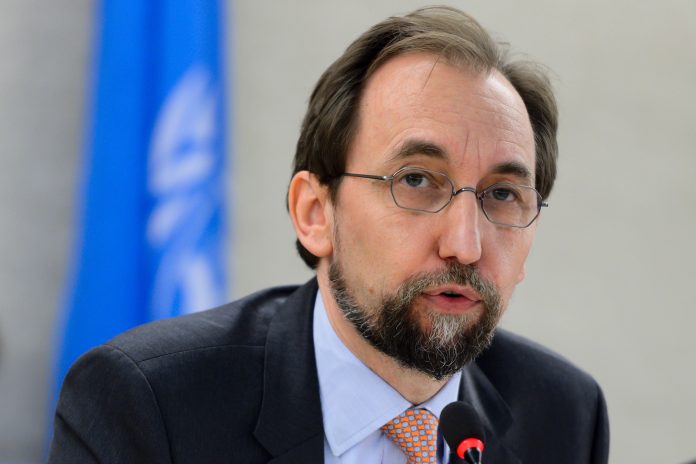
GENEVA / MOGADISHU (13 August 2018) – A UN report has urged Somalia to build on the significant gains made in its peace process in the last five years and take steps to ensure future elections are not marred by the human rights violations and abuses committed during the 2016-2017 electoral process.
The report* by the UN Assistance Mission in Somalia (UNSOM) and the UN Human Rights Office details human rights violations and abuses by State security forces, including the police and intelligence agencies, and non-State actors, among them Al Shabaab, before, during and after parliamentary and presidential elections held in late 2016 and early 2017.
Thirteen clan elders and two electoral delegates were killed between August 2016 and the presidential election held on 8 February 2017. Violent attacks on people involved in the election process continued after this, with the killing of 29 clan elders and electoral delegates, including three women. To date, only two of the 44 documented killings have been investigated and prosecuted.
In addition, journalists, human rights defenders and political leaders were subjected to attacks, intimidation and other forms of harassment and interference. “This violence impeded the free flow of information, undermining the ability of citizens to benefit from and contribute to democratic processes by means of informed decisions on a wide range of issues,” the report says.
The report notes that that the 2016-2017 electoral process took place at a time when Somalia had no political parties. Without the necessary conditions to apply universal suffrage, there was a system of indirect elections whereby 275 electoral colleges, each with 51 delegates, elected the 275 members of the House of the People, which then elected the new President on 8 February 2017. The result was a more diverse parliament with half its members newly elected and women’s representation up from 14 per cent in 2012 to 24 per cent.
“We welcome this progress but more needs to be done. Women, persons with disabilities, minority clans and civil society groups had limited or no access to the electoral process as it was a political process based on clan distribution,” said Michael Keating, the UN Secretary-General’s Special Representative for Somalia and head of UNSOM.
“Looking ahead to elections due in 2020-2021, we are urging the Government to establish a system of representation that is inclusive of all citizens, based on the one person, one vote principle.”
The report also includes a section on the 2017 presidential election in Somaliland on 13 November 2017, where a one person, one vote system was applied. The report details election-related human rights violations in Somaliland, including excessive use of force by security forces against demonstrators, which caused three deaths and injured 17.
“Insecurity, weak justice institutions, and an insufficient human rights protection system contributed to the lack of accountability for human rights violations throughout Somalia,” the report says. It calls for prompt, independent and impartial investigations into human rights violations and abuses committed in the context of the electoral process.
The report also urges the Somali Government to ensure that the national electoral legislation is enacted before the 2020 elections, and that it meets applicable international human rights standards. There should also be vetting of the human rights records of candidates. During the 2016-2017 electoral process, candidates included former warlords and a military commander accused of war crimes.
“As Somalia continues the arduous task of building institutions and constructing peace, respect for human rights must be at the core of this enterprise. This includes guaranteeing all public freedoms, such as the rights to freedom of opinion and expression, and of peaceful assembly and association. It is essential that victims’ rights to remedy and reparation are respected,” said UN High Commissioner for Human Rights Zeid Ra’ad Al Hussein.
ENDS
For more information and media requests, please contact:
In Geneva: Ravina Shamdasani + 41 22 917 9169 / rshamdasani@ohchr.org or Liz Throssell – + 41 22 917 9466 / ethrossell@ohchr.org
In Mogadishu: Joseph Contreras ( +252 699 590080 and +252 619 988211 / contrerasj@un.org)
2018 is the 70th anniversary of the Universal Declaration of Human Rights, adopted by the UN on 10 December 1948. The Universal Declaration – translated into a world record 500 languages – is rooted in the principle that “all human beings are born free and equal in dignity and rights.” It remains relevant to everyone, every day. In honour of the 70thanniversary of this extraordinarily influential document, and to prevent its vital principles from being eroded, we are urging people everywhere to Stand Up for Human Rights: www.standup4humanrights.org.






























